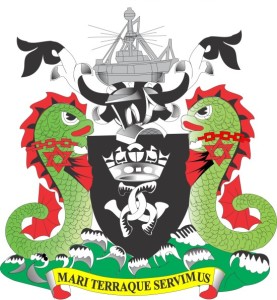In view of the necessity of the country’s attainment of a port hub status in the Central and West Africa sub-regions, more stakeholders have joined to urge the federal government to increase its investment in the deep seaport development efforts of the country.
Speaking with SHIPS & PORTS DAILY, a former managing director of the Nigerian Ports Authority (NPA), Malam Abdul Salam Mohammed said even as the Federal Government is charged with the responsibility of providing 20 per cent investment equity as stipulated in the country’s port development policy, the government can also invest more, especially in assisting in breakwater construction.
Despite having eight deep seaports planned across the country, only two of them are currently under construction, or about to begin construction having attracted the needed private sector investors.
Experts believe that there is still an issue with the equity ratio where the Federal Government contributes only 20 per cent.
Noting that the Federal Government has not been in the tradition of building the breakwater in the current seaport development policy of the country, Mohammed said the government could contribute beyond its 20 per cent equity, or prioritise it equity for the construction of breakwater since that is the biggest challenge in deep seaport development.
“As far as I know, in one of the cases that have been approved, government is not the one constructing the breakwater, but government may be involved in the construction of the breakwater. That will be different from equity contribution. In that case, it will not use its shareholding to construct that, but may say ok, I am going to use my shareholding as my contribution to the construction of the breakwater. Government can construct the breakwater, as there are so many models around the world,” he said.
In 2005 the Federal Government took some key decision in respect to the port sector and came up with a new port development policy. That policy, which had two components, was approved by the Federal Executive Council. The first was the approval of the landlord system of port operation which led to the concession of the port in 2006. Since there were no provisions for the existence of private ports, the federal government also made another policy that the private sector can now establish ports based on a policy of 60, 20, 20 equity, meaning that the private sector can have up to 60 per cent ownership of the port. The community represented by the state government will have 20 per cent equity and the Federal Government 20 per cent in equity.
“When establishing a company it doesn’t mean that you are going to finance everything with your equity holding. Sometimes, you go to banks; you can also raise the equity, or dilute part for one owner in order to raise equity of another shareholder,” said John Iroegbu, a port infrastructure engineer, who also spoke with our correspondent on the matter.
Copyright 2016 Ships & Ports Ltd. Permission to use quotations from this article is granted subject to appropriate credit given to www.shipsandports.com.ng as the source.
